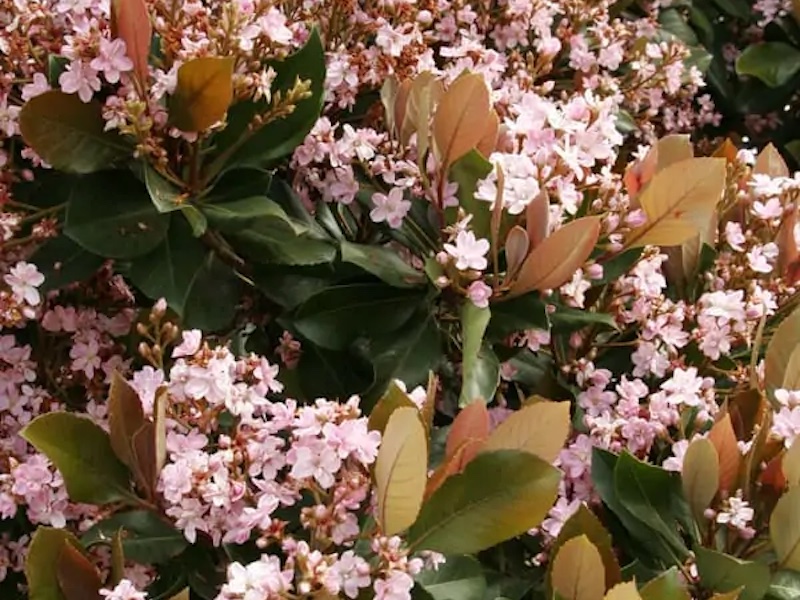Indian Hawthorn, Rhaphiolepis indica, is not considered to be a toxic plant for both humans and animals. It forms deep purple berries in late summer that are likely its most enticing feature to children and pets. Most varieties of Indian Hawthorn have edible berries, although some might taste unpleasant and the seeds should never be eaten. The leaves, stems and flowers are all considered safe, although ingesting large quantities of any plant can be harmful to small animals and humans alike.

Are Indian Hawthorns Poisonous to Children?
Children will not be harmed if they touch the leaves, stems, or flowers of the Indian Hawthorn. All parts are considered safe. The berries are often edible, although the seeds should not be consumed. As with any plant, eating large amounts of Indian Hawthorn berries can cause mild intestinal upset and discomfort.
Are Indian Hawthorns Poisonous to Dogs?
Dogs are not bothered by ingesting small amounts of Indian Hawthorn leaves or flowers. Small puppies that are still in the teething stages should not be allowed to chew on sticks or stems as a rule. Pieces of sharp bark or wood can cause damage to their mouths or intestines if swallowed. Mild intestinal upset can occur if large amounts of the plant have been eaten. The signs of this are usually vomiting or diarrhea.
Are Indian Hawthorns Poisonous to Cats?
The good news is that Indian Hawthorn is non-toxic and not harmful to cats. Outdoor cats may chew on the fleshy leaves, but will not be harmed by a few nibbles. Providing more favored plants for cats to chew will keep them from bothering your ornamental shrubs. A patch of catmint or catnip planted away from the garden could help keep your feline occupied when outdoors.
Are Indian Hawthorns Poisonous to Other Animals?
Indian Hawthorn is not likely to cause issues with other pets or livestock. Animals that graze may do more damage to the plant than to themselves. Indian Hawthorn is non-invasive and is not likely to self-seed in a grazing field or a foraging patch for livestock.
Symptoms Of Indian Hawthorn Poisoning
Always check with your doctor or veterinarian for guidance if you suspect Indian Hawthorn poisoning.
Here are some common symptoms to look out for if large amounts of the berries or leaves have been eaten:
- Pain in the stomach
- Vomiting
- Diarrhea
Preventing Indian Hawthorn Poisoning
Because Indian Hawthorn is a non-toxic plant, it can be used in areas accessible to pets and children without reservations. This evergreen shrub works well in a foundation planting near the house, providing four seasons of interest with glossy green leaves, delicate flowers in spring, and deep purple berries the rest of the year.
Pet Poison Helpline
If something were to happen to your furry friend, and you suspect that they are suffering from Indian Hawthorn poisoning, there is a poison control hotline to call for 24/7 vet advice. It is called the Pet Poison Hotline, and their phone number is (855) 764-7661.
Sources: "Indian Hawthorn." iNaturalist. inaturalist.org
 |
Author Robbin Small - Published 6-08-2023 |
